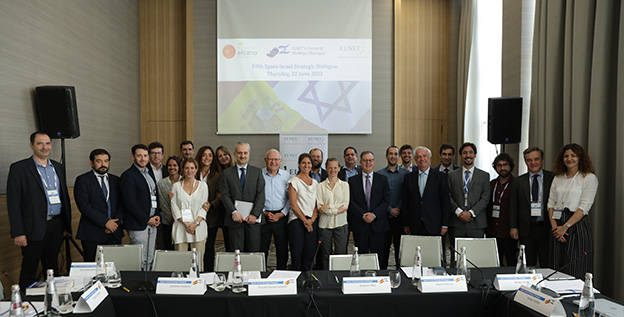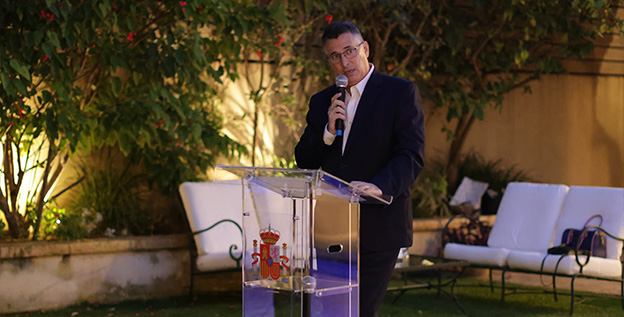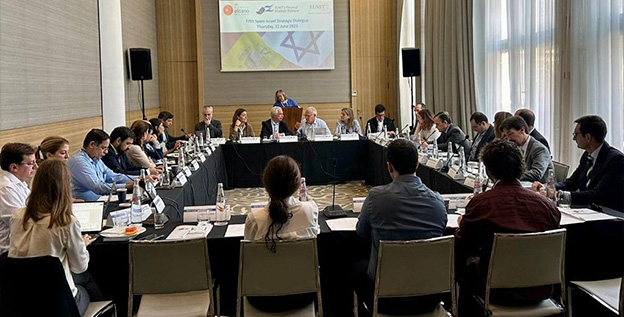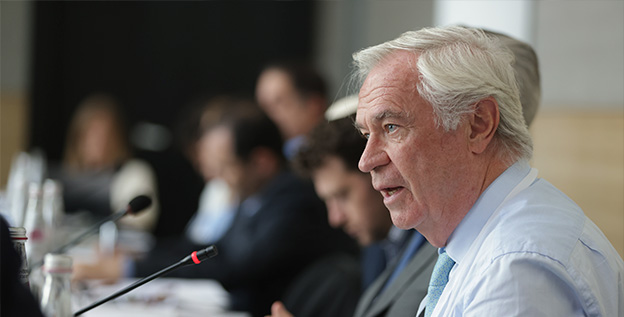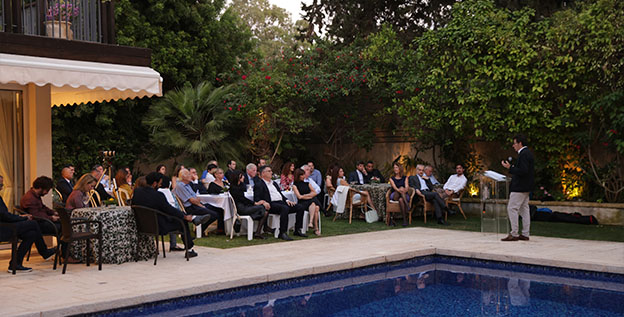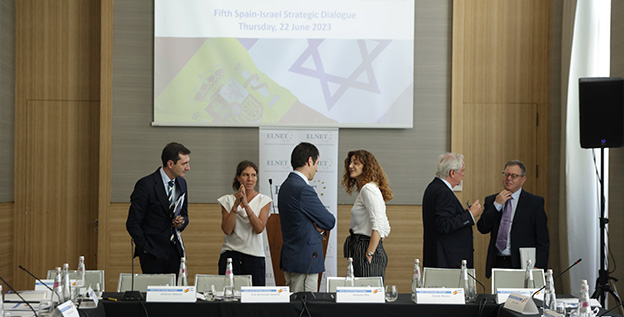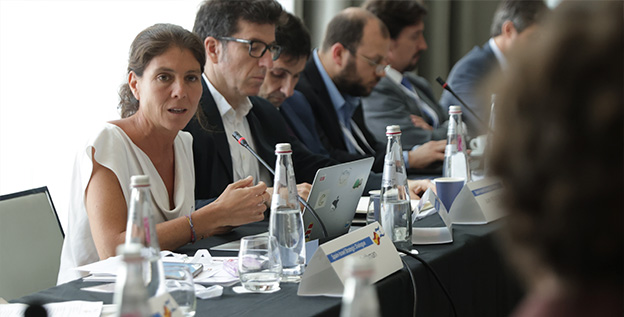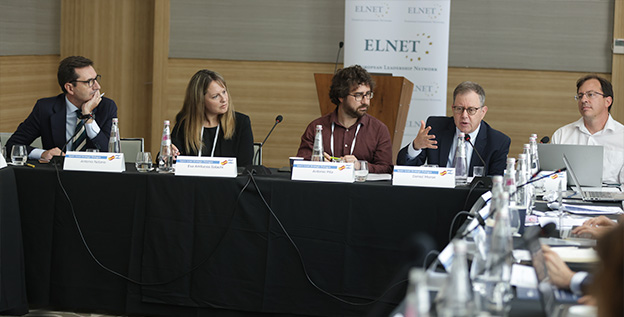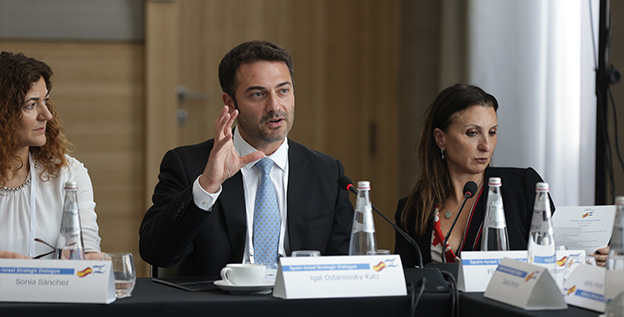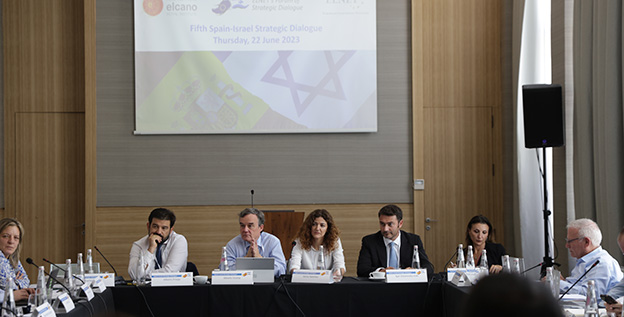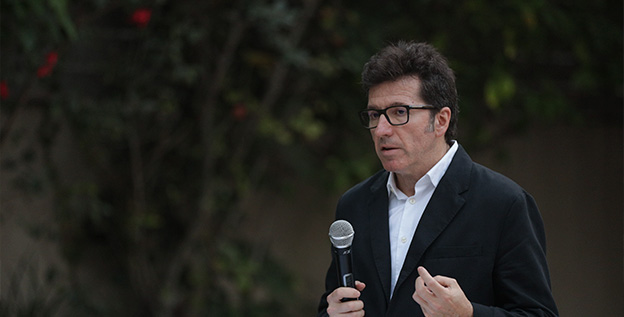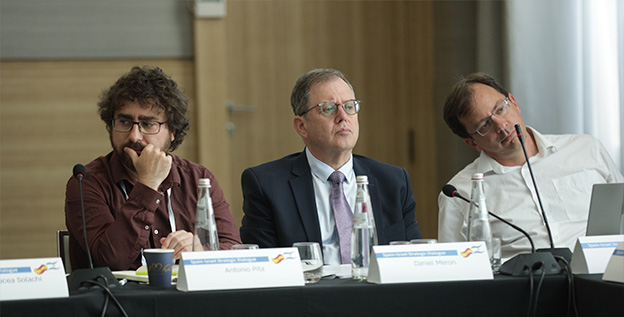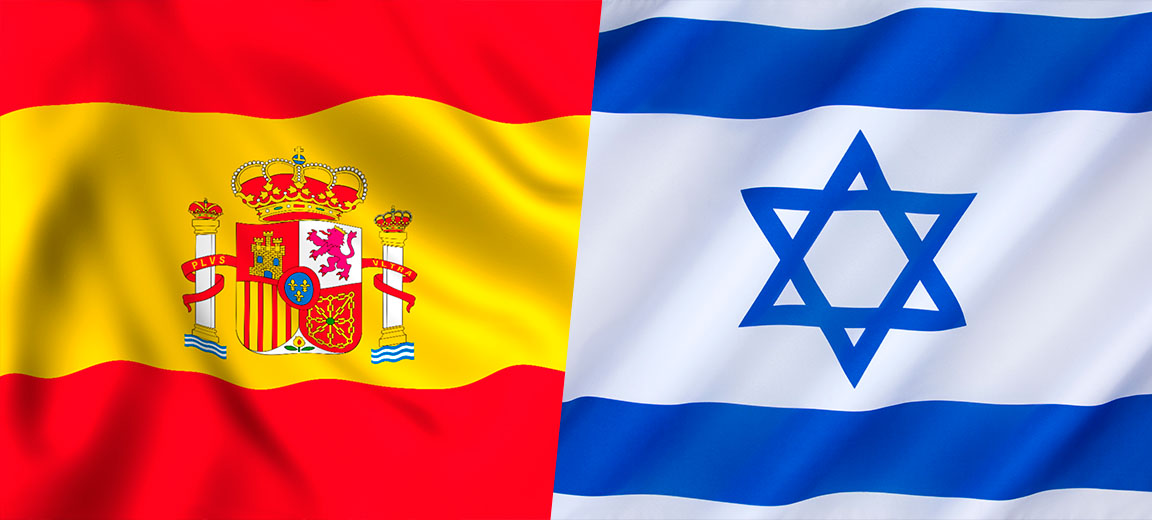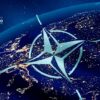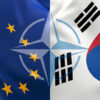The European Leadership Network (ELNET) and ELNET’s Forum of Strategic Dialogue (FSD) partnered with the Elcano Royal Institute to bring together senior policymakers and experts from Spain and Israel.
The dialogue addressed: the Ukraine war and its aftermath; new developments in the Middle East; rethinking European strategic autonomy; Israel’s constitutional debate and effects on national security; and Spain during the second half of 2023: elections and a key EU presidency. The discussions were conducted strictly under the Chatham House Rule.
The dialogue concluded with a special dinner hosted by the Ambassador of Spain to Israel, with keynote speeches by Chairman of the ‘New Hope’ party and Chair of the Knesset Israel-Spain Parliamentary Friendship Group MK Gideon Sa’ar, and Head of the Department of Technical Assistance to the General Secretariat and International Relations, Economic and Social Council of Spain Juan Moscoso del Prado Hernández.
The dialogue was chaired by Maj. Gen. (ret.) Amos Yadlin, Chair, ELNET’s Forum of Strategic Dialogue; former Head of Israel’s Military Intelligence; former Director of the INSS. Participants included senior officials from Spanish and Israeli ministries of foreign affairs and defense, the Israel Defense Forces, the Spanish Prime Minister’s Office, politicians, as well as former officials, experts, journalists, and civil society representatives from Spain and Israel.
Below is a summary of the topics addressed:
The war in Ukraine and its aftermath
- The war in Ukraine has revealed the enduring lethal potential of sustained high intensity interstate conflict, whilst also highlighting the significance of new features of the modern battlefield and heightening the threat of nuclear weapons use and proliferation.
- Spain is strongly committed to NATO and the EU, and has provided military, economic, humanitarian and political support for Ukraine and the defence of NATO’s Eastern flank.
- The conflict has significant knock-on effects in the Middle East, including EU sanctions, prompting Russia to seek to expand trade with Middle Eastern states.
- Israeli officials stress that Israel supports Ukraine and coordinates with like-minded Western states to support sanctions.
- Some Israelis called for a closer alignment with Europe on Ukraine, especially given the increasing strategic ties between Russia and Iran.
New Developments in the Middle East
- Spanish officials emphasized their support for closer cooperation between the EU and Israel, including in dealing with a destabilizing regional alignment of Russia, Iran and Syria.
- They further emphasized Spain’s support for Arab-Israeli normalization in a form that will also advance the two-state solution. They are concerned that settlement expansion will hamper efforts to advance peace with the Palestinians and consequently also with Saudi Arabia.
- Israelis stressed there is no Israeli consensus on settlements. Some argued that Israelis would compromise on settlements and territory in return for peace with Saudi Arabia, but that the entrenched Palestinian leadership remains a key obstacle to a two-state solution, and this should not stand in the way of Arab-Israeli normalization.
- Whilst Arab-Iranian rapprochement and Syria’s return to the Arab fold create a sense of fragile détente in the region, Iran’s nuclear programme and regional policies remain highly destabilizing.
- For Israelis, Iran remains the strategic priority, and above all preventing its acquisition of nuclear weapons. UN restrictions on Iran acquiring ballistic missile technology sunset in October, during Spain’s presidency of the EU.
- Hezbollah remains deterred from a direct confrontation with Israel but not from a dangerous force build up, presenting the risk of miscalculation.
- Israel’s ‘warm peace’ with the UAE is signified by business and people to people ties but is endangered by several factors, including differences of political culture and Israel’s internal instability.
Rethinking European Strategic Autonomy
- The Spanish presidency of the EU (July to December 2023) will include a focus on ‘Open Strategic Autonomy’.
- Israel has an opportunity to share its success with Europeans in military and civilian fields.
- However, there remains broad skepticism of the idea of a strategically autonomous Europe especially in the military sphere.
- A further challenge to EU ambitions is the rise of the radical right, including in Spain where Vox could enter a coalition after the forthcoming general election.
Conclusions and Recommendations
✓ Spain should plan for how it will respond to the sunset of Iranian ballistic missile sanctions in October as Iran radically increases its stocks of high enriched Uranium, and there is urgent need for a coordinated long-term approach to the Iranian nuclear threat
✓ There is considerable scope for Israel to help meet the growing demand of Spain and its EU partners for both military and civilian technology, in ways that align with the EU agenda for ‘Open Strategic Autonomy’, and its ambition to close the gap with the US and China as a global actor.
✓ Israel should consider how it might further its cooperation with EU states over the Ukraine conflict, especially as Russia deepens its strategic ties to Iran.
✓ Israel and Spain should consider how the Abraham Accords, and in particular Israel’s normalization with Morocco, opens new opportunities for cooperation, including in renewable energy and food security.
✓ The Israeli government should be aware of the importance of Israel’s democratic character in its relations with European states, and the potential for its legislative reforms and its policies in the Palestinian arena to undermine its international legitimacy and opportunities of greater cooperation with European and Arab states.
Event originally published in ELNET, European Leadership Network, on July 25, 2023.
Photo gallery of the event:
